"Every interpretation is legitimate, even the most critical" says Christo of his artworks
In our second exclusive video interview with Christo, the artist looks back at some of his most ambitious projects and claims that all critical responses to them are valid.
Working with his late partner Jeanne-Claude, Christo has been producing large-scale installations since the 1960s, provoking a variety of interpretations and critical reactions.
"Many people have difficulty reading our projects," he says in the movie, which Dezeen filmed in London. "They're not normal sculptures, they're not normal paintings. They're many things."
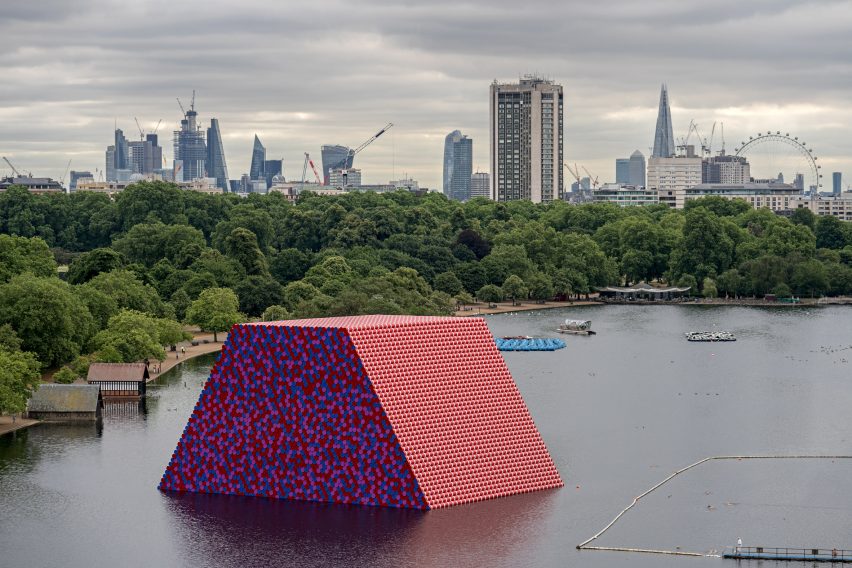
Christo says that he chooses not to define his own work himself. "In the end, Jeanne-Claude and myself would always say, we do not know what the project is," he says. "Every interpretation of the project is legitimate, even the most critical and the most positive."
He adds: "This is why I enjoy these projects. They have open dimensions that absorb everything."
Many of Christo and Jeanne-Claude's artworks are at an architectural scale.
In 1995, the duo wrapped the German Reichstag in Berlin with 100,000 square metres of silver fabric for two weeks, tied to the building using 15.6 kilometres of blue rope.
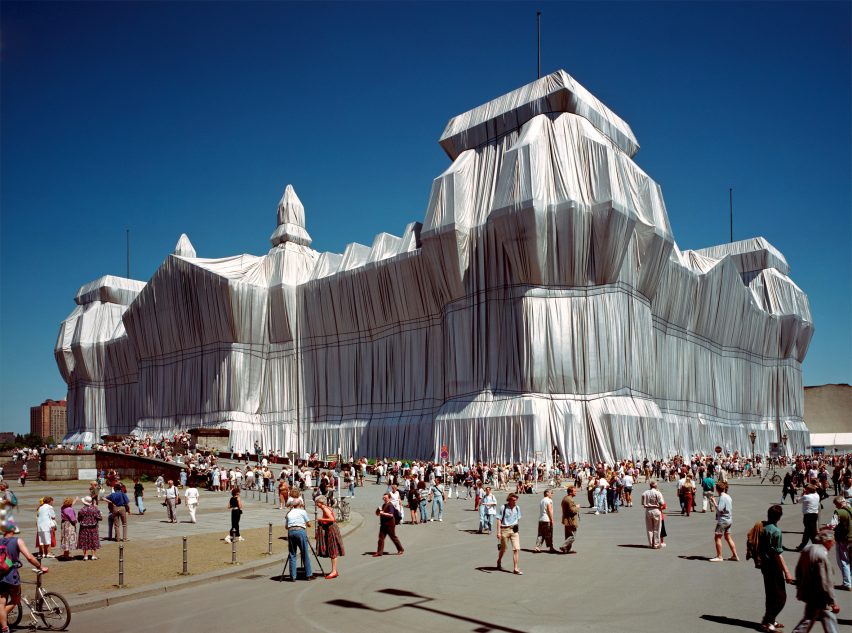
"When we wrapped the Reichstag, the first critic the New York Times sent was not an art critic but an architecture critic," Christo says.
Other architectural structures Christo and Jeanne-Claude have wrapped with fabric include a medieval tower and a fountain, both in the mountain town of Spoleto in Italy in 1968, as well as a 250-metre section of the Aurelian Walls in Rome in 1974, and the entirety of the Pont Neuf bridge in Paris in 1985.
He notes that throughout his career, he and Jeanne-Claude encountered many of the same challenges that architects face during construction.
"There are many identical problems we face that you also face when building a highway, a skyscraper or a bridge, that artists do not have," says Christo.
"Our projects have a dimension of urban planning, like building highways or bridges, and they are also similar in terms of the permitting process."
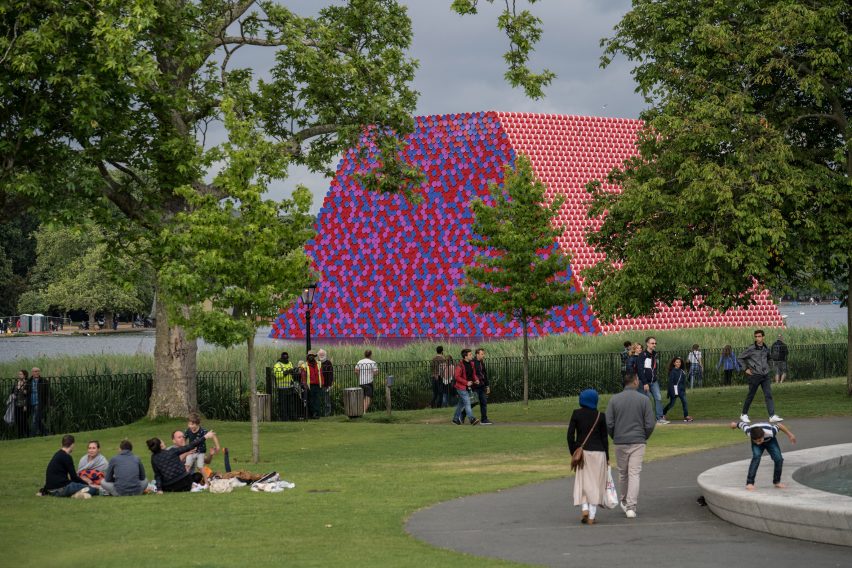
Christo's latest project is a vast stack of brightly coloured barrels floating on the Serpentine Lake in London's Hyde Park.
Called London Mastaba, the project is the culmination of over 60 years of working with stacked barrels, which Christo explains in our previous video interview.
Like the London Mastaba, much of Christo and Jeanne-Claude's previous work explores a relationship with water.
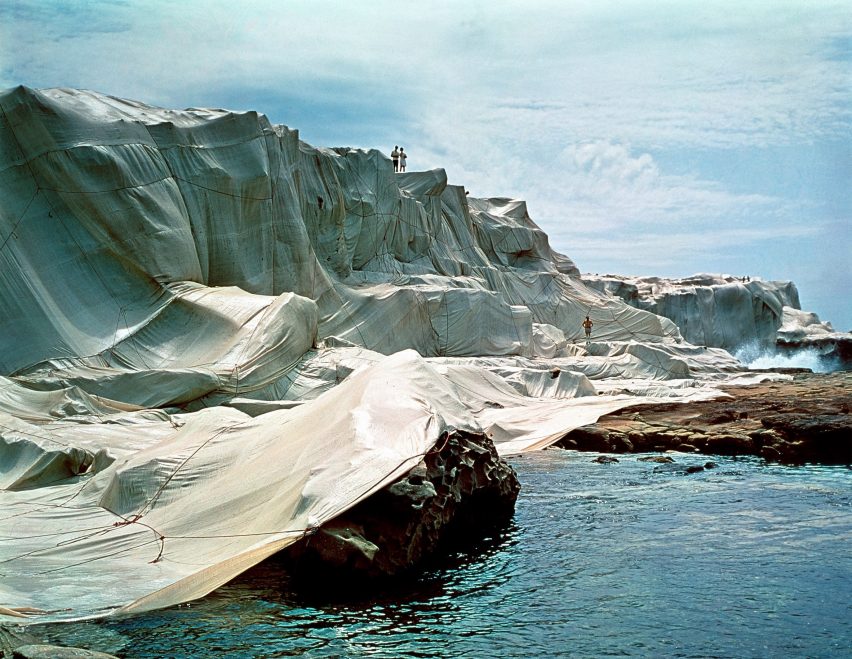
In 1969 they wrapped a mile and a half of the Australian coast in sheets of fabric secured with rope, and in 1983 they surrounded a series of islands in Miami's Biscayne Bay with 603,870 square metres of pink fabric.
In 2016, the pair created a network of floating piers traversing Italy's Lake Iseo, wrapped in a shimmering orange material.
Christo explains that his and Jeanne-Claude's attraction to these landscapes is due to a fascination with the contrast between water and land.
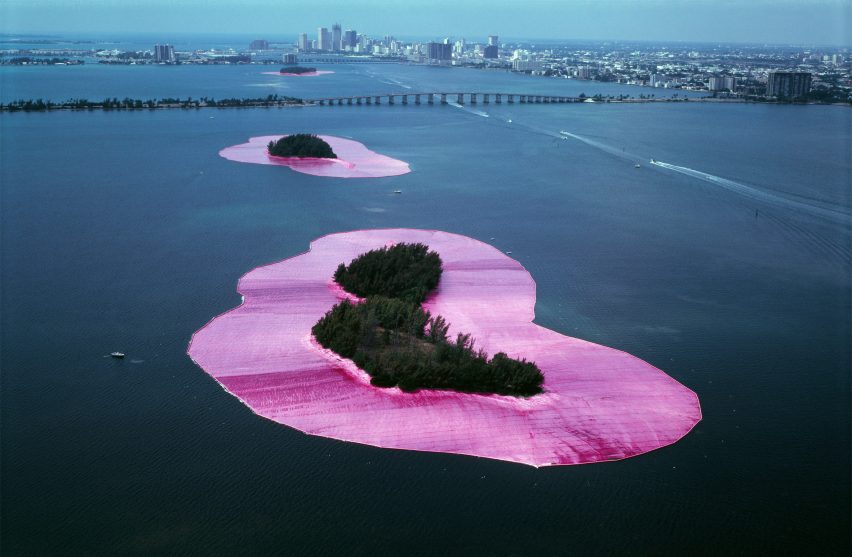
"We are fascinated by the meeting between the fluidity of the water and the sturdiness of the earth" he states.
Christo's London Mastaba is at the Serpentine in Hyde Park, London until 23 September 2018.
The exhibition Christo and Jeanne-Claude: Barrels and The Mastaba 1958-2018 is at the Serpentine Galleries until 9 September 2018 and is free to visit.